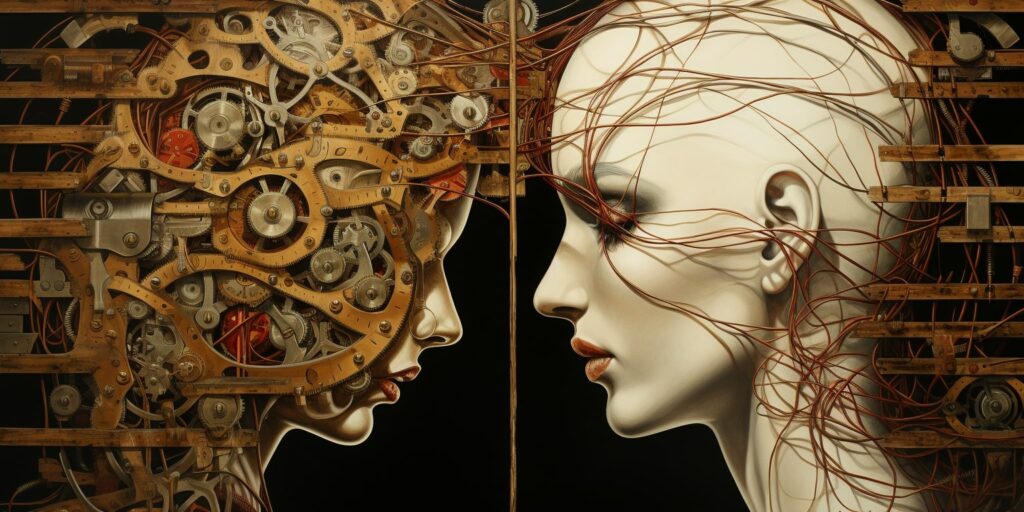Ever found yourself asking, “Why can’t I remember my childhood?” You’re not alone in this quest for answers. This phenomenon is something that puzzles many of us. Childhood amnesia, or the inability to recall early life events, is a widespread occurrence and there’s a scientific reason behind it.
Our brain undergoes significant changes during our first few years of life. It’s busy developing and forming connections necessary for learning, processing sensory information, and acquiring new skills. This constant restructuring might prevent long-term memories from solidifying.
Additionally, the hippocampus – a part of the brain critical for memory formation – isn’t fully developed until around age five. Before this time, we may lack the necessary cognitive structures to form and retrieve autobiographical memories accurately. So next time you wonder about your elusive childhood memories, remember it’s all part of being human!
Understanding Childhood Amnesia
I bet you’ve asked yourself, “Why can’t I remember my childhood?” Well, you’re not alone. This phenomenon is actually quite common and it’s known as childhood amnesia. It’s the reason why most people have few if any, memories from their early years.
Childhood amnesia isn’t about forgetting a couple of episodes here and there. It’s basically an enormous blank spot in our life story. Most adults can’t recall experiences or events that happened before they were 3-4 years old. The question is: why does this happen?
Researchers believe it has to do with the development of our brains when we’re young. In those first few years of life, our brain is rapidly growing and changing – it’s like a sponge soaking up all sorts of information. However, as we grow older, some connections between brain cells become stronger while others weaken and may disappear altogether.
What makes childhood amnesia even more perplexing is that children actually have very good memories. Studies show that two-year-olds’ recall skills are impressive – they can remember specific events for at least a year! Yet these same kids will struggle to remember these times later on in adulthood.
It’s important to understand though; this isn’t indicative of any underlying issue or condition – it’s perfectly normal! So next time you find yourself struggling to pull up memories from your early years, just know it’s part of being human.
The Brain and Memory Formation in Early Life
We often wonder, “Why can’t I remember my childhood?” Don’t worry, there’s a scientific explanation for this. It turns out that our brains haven’t fully developed the necessary tools to store memories until we’re about three or four years old. This stage is known as ‘infantile amnesia,’ and it’s perfectly normal.
Childhood memories aren’t like adult ones. They’re more fragmented and less detailed. The reason? Our young minds are still learning how to process information. During these early years, our brain undergoes rapid changes, growing new cells and making countless connections between them.
What role does the hippocampus play in all of this? It’s one of the key regions involved in memory formation. However, during infancy and toddlerhood, it’s not yet fully matured. This means that while it can process experiences, it doesn’t have the ability to organize them into a coherent memory that can be recalled later on.
In addition to the immature hippocampus, another factor at play is language development. Memories are often tied to language; we think about past events using words. But for infants and toddlers who’ve not yet learnt language completely, their experiences may be stored differently – perhaps more visually or emotionally rather than verbally.
Lastly, let’s consider how much kids are learning each day – crawling, walking talking – everything is new! With so much going on around them every second of every day requires intense concentration from their developing brains which could leave little room for storing long-term memories.
So next time you wonder why your earliest memories only start around age three or four – remember – your brain was just too busy growing!
Impact of Trauma on Childhood Memories
Trauma can play a significant role in why you might find it hard to recall childhood memories. It’s interesting to note that when faced with traumatic events, especially during early years, our brain has a tendency to “block out” these distressing experiences as a coping mechanism. This defensive strategy is often referred to as dissociative amnesia.
Psychologists have discovered that this isn’t an uncommon occurrence. In fact, according to a study by the American Psychological Association, approximately 5% of people may experience some form of dissociative disorder in their lifetime. These disorders are characterized by memory loss that goes beyond normal forgetfulness and include gaps in time and personal history.
| Study Source | Percentage |
|---|---|
| American Psychological Association | 5% |
The intricate relationship between trauma and memory does not end there. In severe cases, individuals may develop Post-Traumatic Stress Disorder (PTSD). Symptoms commonly associated with PTSD such as flashbacks and nightmares further distort the formation and retrieval of memories.
- Flashbacks: where past traumas feel like they’re happening again
- Nightmares: disturbing dreams related to the traumatic event
Considering all these factors, it’s no surprise that childhood trauma can lead to fragmented or lost memories. But remember – everyone’s experience is unique. Some might remember every detail vividly while others may draw blanks trying to recall their pasts.
Yet another piece of this complex puzzle involves how trauma impacts neural pathways involved in memory processing. Research suggests damage or changes within the hippocampus – a region critical for storing new memories – following severe stress or trauma.
Ultimately, if you’re struggling with gaps in your childhood memories due to potential traumatic events, seeking professional help could prove beneficial. Therapists trained in trauma recovery can provide tailored strategies for understanding and dealing with these difficult circumstances.
Role of Language Development in Memory Recall
Ever wondered why you’re unable to remember your early childhood memories? It’s got a lot to do with the development of language skills. As kids, we’re still learning how to express ourselves verbally. Our experiences are rich and vivid, but without the tools of language, it can be difficult for us to encode those experiences into long-term memory.
Language plays a crucial role in memory recall. Think about it – when was the last time you tried remembering something? Chances are, you framed that memory using words and sentences. This is where children face a challenge. They’re just starting to grasp the concept of language, so their ability to ‘save’ these memories effectively is limited.
One study found that children start forming autobiographical memories around age two or three – right when they begin mastering language. But here’s an interesting twist: these earliest memories often fade by the time we reach seven or eight years old, in what researchers call “childhood amnesia”. This suggests that our mature understanding of language aids not only in creating memories but also preserving them.
Let’s dive into some numbers:
| Age Group | Average Earliest Memory |
|---|---|
| 2-3 | First steps |
| 4-5 | Starting school |
| 6-7 | Friendship bonds |
As this table shows, as our vocabulary expands and we learn more complex sentence structures, we start developing stronger and more lasting memories.
So next time you ponder over why certain childhood memories evade your grasp, remember – it all boils down to your linguistic capabilities at that age!
Emotional State’s Influence on Childhood Recollection
It’s a common phenomenon to struggle in recollecting childhood memories. Our emotional state during these years plays a significant role in this. Research indicates that traumatic events may trigger what psychologists call “repressive memory loss.” This is our brain’s way of shielding us from distressing experiences.
For instance, let me share a study done by Brown University. They found that children who’ve gone through severe trauma are more likely to forget specific details or whole segments of their childhood. In their research, they discovered:
| Trauma Level | Memory Loss Percentage |
|---|---|
| High | 64% |
| Medium | 36% |
| Low | 17% |
On the flip side, positive and highly emotional moments can also get etched into our memory so deeply that we recall them with ease, even after several decades! These are termed as ‘flashbulb’ memories – vivid and detailed snapshots of momentous events.
- Your first bike ride
- The day your little sibling was born
- That championship baseball game you won
All these instances bring out strong emotions which cement them into our long-term memory bank.
Our brains process and store information differently at different ages as well. During early childhood years (3-7), it’s still developing its ability to form and retrieve autobiographical memories – ones linked to personal experiences and emotions. Consequently, many people have only vague recollections or no memory at all from this period, referred to as ‘childhood amnesia’.
But remember, everyone’s recall capability varies widely due to individual differences in brain development and life experiences – there isn’t one universal experience when it comes to remembering childhood.
Differences between Implicit and Explicit Memory in Children
I’ve often wondered why certain childhood memories stick with us while others fade away. It all boils down to the differences between implicit and explicit memory, especially in children. Let’s delve into this fascinating topic together.
Explicit memory, or declarative memory as it’s also known, involves conscious thought. It’s the type of memory we use when we recall specific events or facts. It’s like a mental scrapbook where we store our first day of school, an unforgettable family vacation, or that time we won the spelling bee.
On the other hand, implicit memory is quite different; it operates on a subconscious level. We don’t have to consciously think about these types of memories; they’re automatic responses ingrained in us over time. For instance, riding a bike or tying shoelaces are classic examples of implicit memories.
A key point worth noting is that explicit memory develops slower than implicit memory in children due to brain development factors. The hippocampus – responsible for creating new explicit memories – isn’t fully developed until late adolescence. That’s why you might struggle to remember your early years but can effortlessly ride a bike!
Interestingly enough, studies have shown considerable variation among children when it comes to remembering past events:
| Age | Percentage Remembering Events |
|---|---|
| 2 years | 63% |
| 3 years | 72% |
| Children’s ability to recall past events increases gradually with age. |
To sum up:
- Explicit memories are conscious recollections which develop later in childhood.
- Implicit memories are automatic responses developed subconsciously from an early age.
Understanding these differences not only helps us comprehend how our minds work but also underscores how unique each child’s cognitive development truly is!
Strategies to Recover Forgotten Childhood Memories
Childhood memories can be elusive, but don’t worry – there are a few strategies I’ve learned that might help jog your memory. First and foremost, it’s important to relax. Putting too much pressure on yourself could actually make it harder to recall forgotten details.
A good place for you to start might be looking at old photographs or home videos if they’re available. You’d be surprised at how often visual cues can trigger latent memories. Even simple things like the wallpaper in an old bedroom or the pattern on a favorite outfit could spark recollections.
Talking with family members and friends can also be extremely helpful. They may remember events or experiences you’ve completely forgotten about and sharing those stories could bring back your own memories of them.
Another strategy is retracing your steps by visiting places from your childhood such as schools, parks, or even old homes. These locations could contain nuances which might awaken dormant childhood memories.
Lastly, consider trying techniques like meditation or hypnotherapy under the guidance of a professional. While these methods aren’t guaranteed to work for everyone, many people find them effective in unlocking hidden corners of their minds where forgotten memories reside.
Remember that recalling childhood memories isn’t an exact science – it’s more akin to piecing together a jigsaw puzzle without having all the pieces in front of you. Don’t expect instant results; sometimes, patience is key.
Conclusion: Why Some People Can’t Remember Their Childhood
I’ve dug deep into the topic and this is my final take. The inability to recall childhood memories, known as childhood amnesia, isn’t unusual. It’s a widespread phenomenon that many people experience.
First off, our brains aren’t fully developed during our early years. This means they’re not equipped to form long-term memories in the same manner as an adult brain would. Neuroscience research suggests that rapid neuron growth in young children could make it harder for stable connections – essential for memory formation – to develop.
Secondly, language plays a crucial role in memory formation. Until we have mastered language skills, it’s difficult for us to label and make sense of our experiences. Without these labels, memories can be elusive.
Another factor is the way children perceive time and space compared to adults. Kids live very much in the present moment; their concept of past events is quite different from ours as grown-ups.
Finally, psychological theories propose that we forget early life experiences because they may contain distressing or traumatic content—our minds’ natural defense mechanism at work.
- Rapid neuron growth
- Underdeveloped language skills
- Different perception of time and space
- Possible distressing or traumatic content
Remember though, everyone’s mind works differently and there are exceptions to every rule. Some people might have vivid memories from when they were toddlers while others struggle with recollections from just yesterday!
In conclusion (or rather lack thereof), I’d say it’s okay if you can’t remember your childhood clearly – you’re not alone! Instead of fretting over forgotten yesteryears, let’s focus on making memorable moments today.



